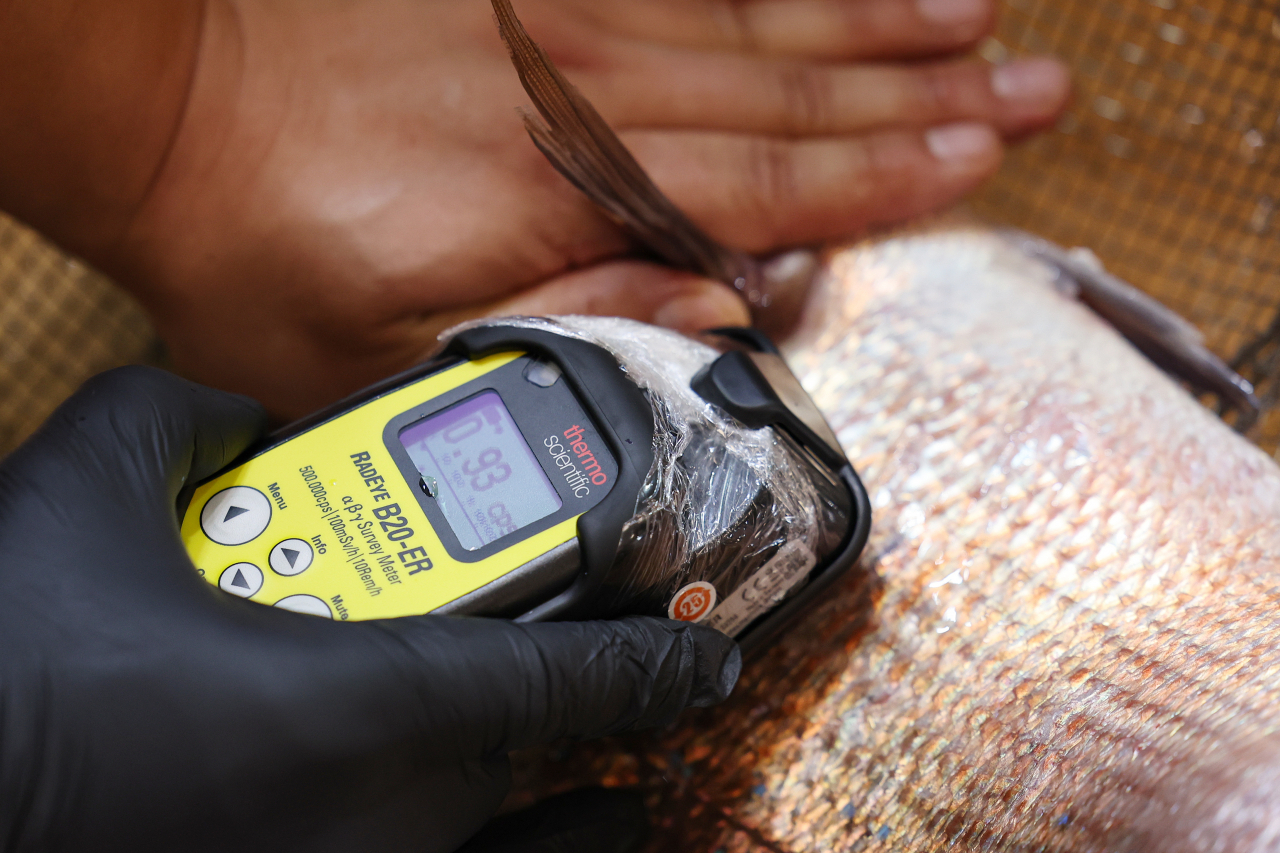 |
An official at the Noryangjin Fisheries Wholesale Market in Seoul measures radiation levels of fishery products on Tuesday. (Yonhap) |
South Korea’s fisheries industry on Tuesday raised concerns over the business impact of Japan’s planned release of radioactive water from the crippled Fukushima nuclear plant into the ocean later this week.
“Concerns are mounting among merchants here as the latest announcement will lead directly to decreases in the number of visitors to fish markets, as well as in the overall consumption of fish and seafood,” an official from the National Federation of Fisheries Cooperatives told The Korea Herald.
For instance, Seoul’s Noryangjin Fisheries Wholesale Market, the nation’s largest fish market, has already seen a fall in sales since last month, following the safety review of the International Atomic Energy Agency of the Fukushima water, he said.
“Regardless of the validity of the safety review, merchants are concerned about their business outlook,” the official added.
The official said his organization plans to hold a conference at the Noryangjin market this week to share ideas to counter the potential fallout that will follow Japan’s water release.
According to a report released by the fisheries cooperative, sales of fishery products at local markets tumbled almost 40 percent back in 2013, when the Japanese government admitted that highly contaminated water had leaked from the damaged nuclear power plant in Fukushima. Discount stores also suffered about a 20 percent decline in sales, the report added.
Consumers are also expressing fears about eating seafood after the water release. “I feel like I should no longer eat seafood for safety reasons,” said a 53-year-old woman who lives in Gyeonggi Province.
In a poll conducted by the nongovernmental Korea Consumer Agency in April, 92.4 percent of 525 respondents said that they would reduce their seafood consumption if Japan releases the contaminated water.
Retailers said there was no significant change in sales of fishery products in June and July. But they added they will strengthen monitoring of radiation levels of fishery products in the future.
Seoul’s Ministry of Oceans and Fisheries also plans to ramp up efforts to boost sales of fish and seafood consumption, doubling its budget to stockpile fishery products to 175 billion won ($131 million).
Whether the government will directly offer financial support for fishery businesses, however, has not yet been decided.






![[Herald Interview] How Gopizza got big in India](http://res.heraldm.com/phpwas/restmb_idxmake.php?idx=644&simg=/content/image/2024/11/20/20241120050057_0.jpg)
